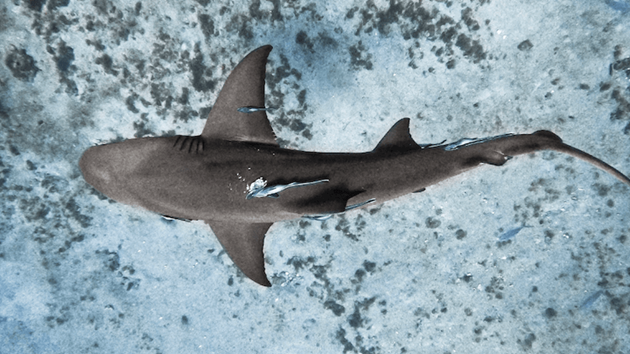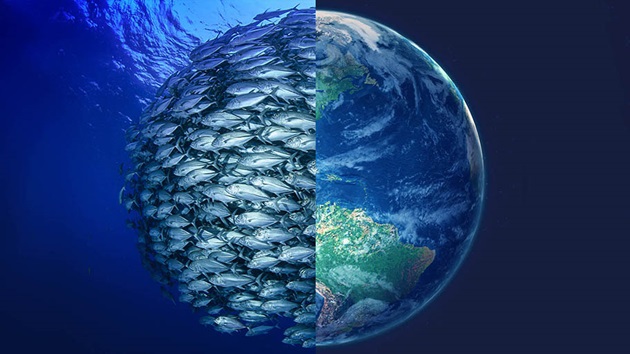How many of these 10 actions can take to look after the ocean and be an Ocean Hero?
Action 1 - Look for the Blue Fish Tick
To make sure that your seafood is sustainably sourced, look for the blue fish tick on tinned and frozen fish products, or at some fishmongers and restaurants. Where you can’t see the MSC blue fish tick, don’t be afraid to ask ‘is this seafood sustainable?’ and ‘how can you prove it?’
Tip! You can also find the blue fish tick on pet food products like DINE cat food.
Action 2 - Fish Carefully
Learn about the catch and size limits for fish in your local waterway, so that you put back any undersized fish or females carrying eggs.
Know your knots! Be very careful with your fishing gear, so that you don’t accidentally catch or entangle other sea life with your line or net.
Action 3 - Use the Whole Fish
You can make fish stock using the bones and heads, prawn, crab and lobster shells, and other shellfish leftovers.
Australian chef Josh Niland offers some great tips in The Whole Fish Cookbook.
Action 4 - Take your litter with you
Make sure you always take your rubbish with you! All litter, even those pieces that are left on a city street or park, will eventually make its way into the ocean. Even better, reduce single plastics in the first place by using reusable bags, wraps, straws, bottles and containers.Action 5 - Mind your step
Walk lightly so that you don’t trample sand dunes, river banks, grasses, or plants that make habitat for small insects and organisms by the water.
Action 6 - Don't be Shellfish
Seashells can be very beautiful! But you should always check if there is a creature living inside a shell before you pick it up, and never take shells out of the water. If you do collect shells, only take one. Shells will make homes for future hermit crabs and will eventually turn into sand for the beach.
Action 7 - Turn off the Tap
Saving water helps to prevent excess runoff and wastewater, which can pollute the ocean.
Action 8 - Pick up your Pen
Once upon a time, people would write a letter in a bottle and put it in the ocean to signal their distress.
Today, we know that a more effective way to take action is to write a letter of advocacy about a specific ocean issue that you care about.
Send your letter to the most relevant local government authority, who helps make decisions about the issue. Alternatively, you could send your letter to the editor of a newspaper.
An effective letter is short and simple, clearly written, and creates emotion!
Action 9 - Learn about Ocean Life
Learn as much as you can about the amazing underworld of the ocean! You can do this by reading, watching documentaries, playing games, or asking your classroom teacher to do a Q&A with an expert.Action 10 - Inspire others!
Share your learnings with your family, friends, and classmates to inspire them to be an Ocean Hero too!Sign up for teacher updates
Each quarter, we'll feature the latest education resources, upcoming calendar dates, competitions and the very best ocean-related stories.


